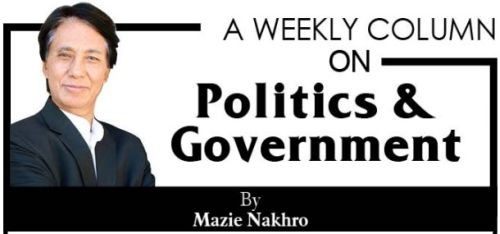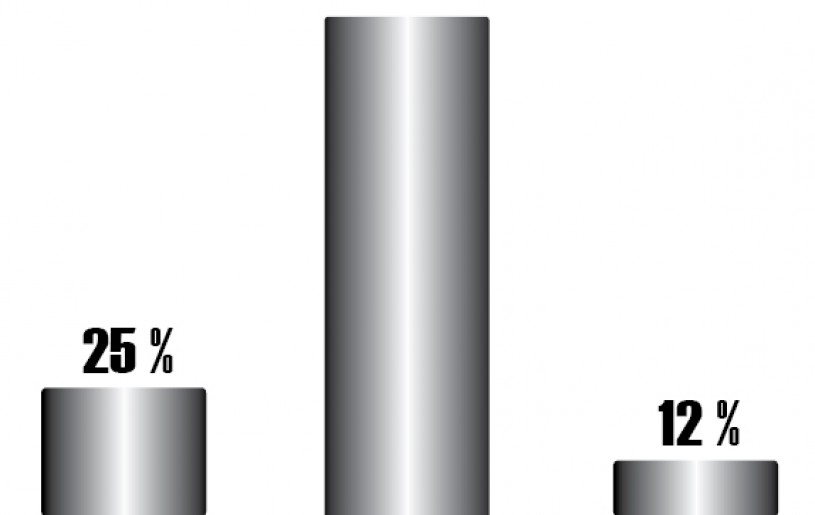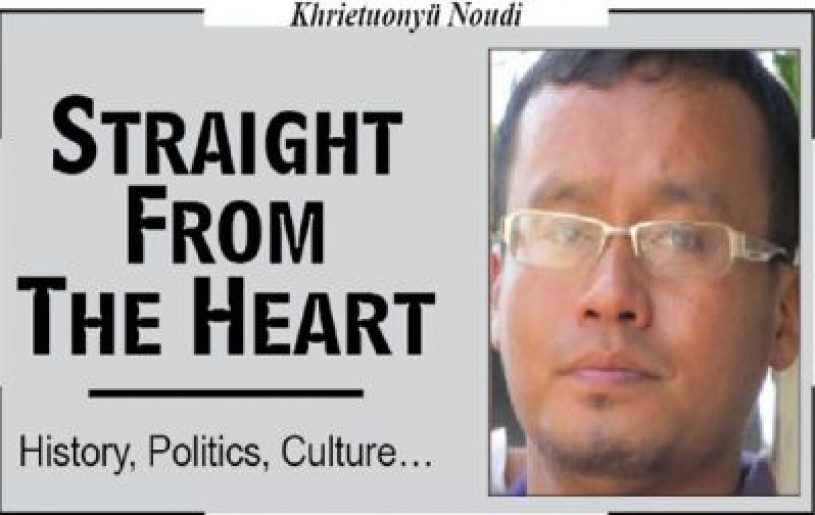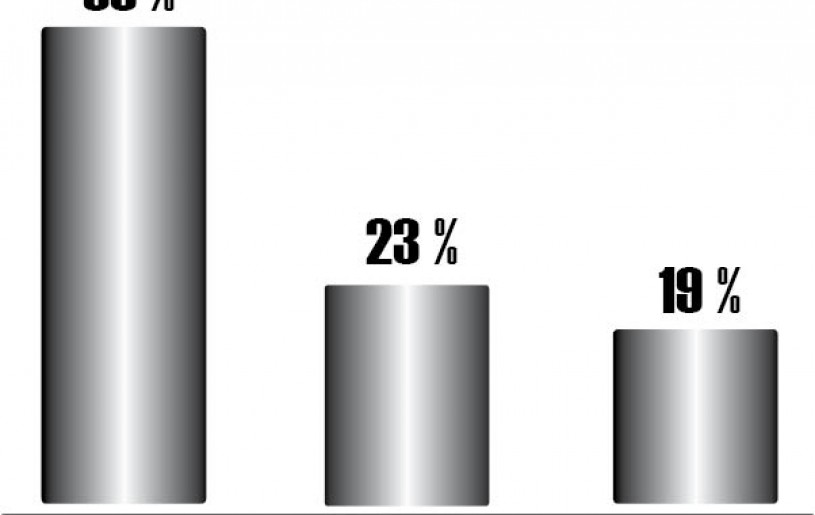
A little over seven decades after the coming of Christianity into the Naga homeland in 1872, some of our early Naga leaders possibly came to a belief that God has a special geo-political plan for our people. Perhaps it was due to this belief that they refused to consider themselves as a part of Hindu India or Muslim Pakistan (Bangladesh). Instead, they felt that they had every right, like everyone else, to become an independent nation-state “under God.” This God-inspired conviction fed early Naga patriotism and put the Naga people on a Christo-centric foundation throughout the 1950s. Hence, every Naga at the time, whether man or woman, was willing to forego his or her individual self-interests and make sacrifices for a common aspiration despite extreme hardships and opposition.
This optimism of the past, however, has turned into dark pessimism. More than five decades of accumulative experiences in our Nagaland state politics have served to confirm this pessimism. Since the time of S.C. Jamir, the Congress’ secular political ideology began to be introduced among the Naga Christians and gradually God was ushered out from our political affairs. Although the seed of political corruption and secular humanism was sown by Mr. Jamir, he was obviously more driven by selfish ambition for power which he was able to achieve both at the state and national levels. As a “mentee” of Mr. Jamir, Mr. Neiphiu Rio learned to walk in the footsteps of his predecessor both in promoting secular humanism and in perfecting the art of corruption, but he was not as successful in his pursuit for power, especially at the national level.
Like their former bosses, most of our politicians today have nothing to do with God or public service anymore. After they entered politics, they too seem to have developed a dichotomous worldview that they needed to take God out of politics and leave their faith behind, or have their values compromised, if they wanted to be successful politicians. Thus, instead of holding on to God, they have chosen to hold on to power. Consequently, God is no more in our Naga state politics today. For running our state of affairs, we have turned our politics over to secular humanism and to the pursuit of individual self-interests. Or, the much blunter word is Godlessness. Which is why the problems we face as a society do not yield to all the efforts and money and expertise we expend to solve them.
In other words, the first thing missing in Naga state politics is God. Our faith doesn’t inform our political decisions anymore. Our Christian values are desperately missing in our public service because God is missing in our politics. As a result, our society has been sliding into moral decadence and beginning to rot from within.
Our pastors and church leaders know this better than anyone else: Without God, we have no future worth dreaming about. But if God is acknowledged and given His rightful place over us, He would still cause even the seemingly impossible possible. In addition, God could be the common glue to unite us all. But despite knowing all this, many of our Christian leaders are too afraid to take a public stand even on clear moral/ethical issues, According to them, being neutral on matters of political issues and saying nothing negative about any corrupt politician are Christian virtues to be encouraged.
The second missing ingredient in our Naga politics is public service. In Nagaland, people don’t get into politics because they have a burden to serve the people. In fact, they don’t even have to have any ethical concern for society, a vision for the future generation, or a political ideology to abide by. Their understanding of politics is all about selfish ambition for wealth and power. Their decision to join politics is based on the amount of money they have accumulated so as to ensure their election victory. It’s all about beating the other guys and becoming a “Minister” by hook or by crook. After winning, they go on to demand for the portfolio that promises the most availability of funds. They see politics more as a privilege for self-indulgence rather than as a responsibility or an opportunity for service. Their politics is all about self-service under the guise of public service. They come up with welfare schemes and developmental projects in the name of helping the poor and make money for themselves. They act as champions of the struggling lot but buy off their properties at throw away prices in one way or another. They loftily ride on the backs of the downtrodden and yet the burdens of these people are the least in their mind. So, the question is: Do these leaders know the real meaning of public service?
By definition, public interest is about serving with the best interests of the overall community, or national good, rather than the narrow interests of a particular person or group. As such, the priorities of all our politicians or public servants should be to make governmental institutions more responsive to the needs of the public, especially the needy and the underprivileged.
If my observations about our elected leaders are wrong---and I wish they are-- then you have nothing to be scared of. But what if they are correct? Then, I’m afraid we are not yet out of our perilous times and, in fact, maybe still carelessly heading towards a precipice of our own destruction.
The best and safest way to move our society forward is to look to God (“North-Star’) for reliable guidance and to rediscover public service in our politics. These two elements are like the two railway tracks on which our society must run on. And, by the way, they are also the two most important spiritual duties for all: One is vertical which is following God’s direction and the other is horizontal which is serving others as we would like to be served.





